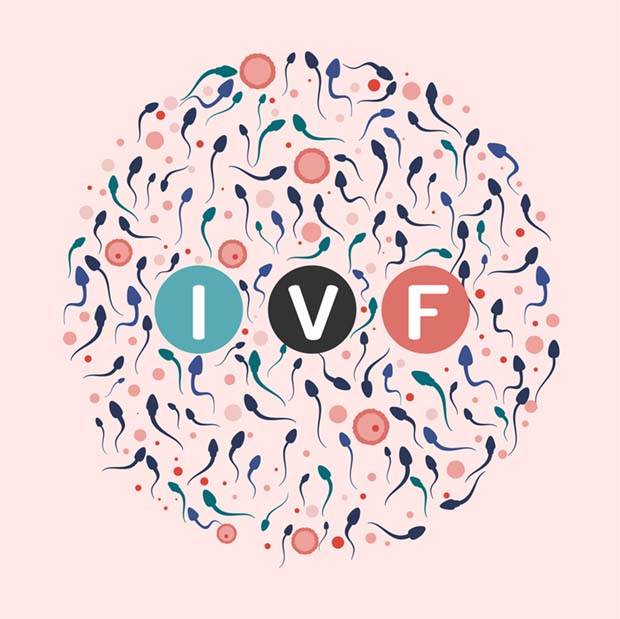Health
Can Vitamin D Deficiency Cause Health Problems?
Vitamin D is often called the “sunshine diet” due to the fact it’s miles produced using your frame whilst your pores and skin are uncovered to the sun. Since diet D helps to keep your bones strong, a d

Vitamin D is often called the “sunshine diet” due to the fact it’s miles produced using your frame whilst your pores and skin are uncovered to the sun. Since diet D helps to keep your bones strong, a deficiency can result in bone softening and subsequent bone pain and fractures.
What Does Vitamin D Have to Do With?
While diet D deficiency is sadly very not unusual, the good news is this health situation can be identified with an easy blood take Vidalista 60 mg look at and dealt with dietary supplements.
Vitamin D Deficiency Symptoms
Most humans with nutrition D deficiency are asymptomatic. Only with an intense and extended deficiency do symptoms arise.
The predominant function of diet D is to soak up calcium and phosphorus from the intestines to build and preserve bone mass. With vitamin D deficiency, this can’t arise safely. With an excessive deficiency, bone softening (a condition known as osteomalacia in adults and rickets in youngsters) may additionally increase.
With osteomalacia and rickets, someone may also experience throbbing bone discomfort and muscle weak point and ache. Osteomalacia additionally increases a person’s possibility of growing bone fractures, falling, and experiencing taking walks issues.
Besides bone and muscle symptoms, fatigue and depression also are related to diet D deficiency.
Causes
Since you want sun exposure to make nutrition D, the maximum at-danger populations for vitamin D deficiency include anybody who spends a lot of time interior (the aged and the homebound, for instance) and those with dark skin (as it absorbs less daylight than lighter skin).
Other populations in danger of diet D deficiency include:
- Those who no longer consume sufficient nutritional D-containing ingredients (e.G., canned tuna and fortified cow’s milk)
- Those with illnesses that affect the absorption of nutrition D within the intestine (e.G., celiac ailment and Crohn’s sickness)
- Those with illnesses that affect the metabolism of nutrition D into its energetic shape (e.G., continual kidney disease or liver disease)
- Those who’re obese (extra fats tissue hides away diet D rather than liberating it into the bloodstream)
- Those who take medicines that beautify the breakdown of diet D (e.G., anti-seizure medicinal drugs)
Interesting Associations
Besides its primary characteristic in calcium metabolism, diet D may additionally play a position in reducing infection and moderating immune function within the body. This can be why studies have located hyperlinks between nutrition D deficiency and diverse autoimmune diseases like multiple sclerosis, rheumatoid arthritis, and sort 1 diabetes.
Heart disease and most cancers have also been linked to diet D deficiency. Research has proven that greater heart assaults occur in wintry weather (while people cross outdoors less and consequently have lower vitamin D degrees) and that people live with most cancers better in summertime months (while their vitamin D levels are better).
Diagnosis
If you have got one or more threat factors for vitamin D deficiency—for instance, if you are obese, or when you have continual kidney ailment or a gut malabsorption syndrome—your healthcare company should screen you for nutrition D deficiency.
Certain signs and symptoms can also prompt your healthcare issuer to test for vitamin D deficiency, consisting of an expanded number of falls, specifically if you are elderly and using Fildena Pills.
However, screening for nutrition D deficiency in a person without symptoms is currently not endorsed.
Treatment
The treatment of vitamin D deficiency depends on several factors, inclusive of the severity of the deficiency and whether certain underlying fitness issues exist.
That said, in the sizable majority of instances, nutrition D deficiency is dealt with with a supplement.
Supplements
There are principal varieties of nutrition D: diet D2 (ergocalciferol) and nutrition D3 (cholecalciferol), the latter of that’s utilized in most dietary supplements.
Keep in mind that higher doses may be had to treat human beings with scientific situations that have an effect on nutrition D absorption within the intestine, and people taking medicinal drugs that affect nutrition D metabolism.
Vitamin D Toxicity
Excess vitamin D may additionally cause symptoms associated with high calcium levels in the blood, inclusive of muscle weakness, aches, heart arrhythmias, and kidney stones. This is why it’s far more important to best take a Fildena 150mg supplement as directed by using your healthcare company.
Food
Diet is a further, even though no longer robust, supply of diet D, and consequently now not generally endorsed for treating a deficiency. That said, it may be beneficial for preserving a healthful nutrition D degree.
Foods that comprise nutrition D encompass:
- Fatty fish (e.G., salmon and swordfish)
- Cod liver oil
- Nuts
- Cereals and dairy products fortified with vitamin D
- Cheese
- Eggs
- Mushrooms
- Beef liver
Sunlight
Sunlight is the third supply of nutrition D. As with diet, it isn’t generally recommended as a treatment for vitamin D deficiency. This is due to the accelerated threat of skin cancer related to solar exposure.
Prevention
While the amount of vitamin D that a person needs varies based totally on factors like pores and skin coloration and solar publicity, trendy recommendations from the IOM country that people a long time 1 to 70 need to take a complement containing six hundred IU of vitamin D each day. After age 70, a person has to take 800 IU of vitamin D day by day.14
These nutrition D preventive suggestions are for the overall population—not for human beings with a recognized diet D deficiency. People who’re deficient in nutrition D require therapeutic doses of vitamin D.
In addition to or instead of taking a supplement, your healthcare provider may recommend that you devour or drink ingredients that comprise nutrition D and/or that you get some sunshine (but now not an excessive amount).
The remedy for diet D deficiency is critical for preserving your bones sturdy, and it can enhance the health of different structures and tissues in your frame like your immune machine and heart.
However, earlier than you make huge modifications, please communicate with your healthcare company first to decide what the excellent treatment plan is for you.
Health
Nourish Your Life Today And Expand Your Life Span in 2024

In a world that often demands more than it gives, finding ways to nourish your life can lead to a more fulfilling and balanced existence. Nourishment goes beyond the food we eat; it encompasses our mental, emotional, and physical well-being. To truly nourish your life, it’s essential to cultivate habits and practices that promote overall health and happiness. This comprehensive guide will explore various strategies to help you nourish your life in every aspect.
1. Understanding True Nourishment
What Does It Mean to Nourish Your Life?
Nourishing your life means providing the necessary sustenance for your body, mind, and soul to thrive. It involves adopting a holistic approach that includes healthy eating, mental well-being, emotional balance, and physical fitness.
The Importance of Holistic Well-being
Holistic well-being recognizes the interconnectedness of the different aspects of our lives. By addressing all areas—physical, mental, emotional, and spiritual—we can achieve a state of harmony and balance.
2. Nourishing Your Body
Balanced Nutrition
Eating a balanced diet rich in fruits, vegetables, whole grains, lean proteins, and healthy fats is fundamental to nourishing your body. These foods provide essential nutrients that support overall health and vitality.
Hydration
Staying hydrated is crucial for bodily functions, including digestion, circulation, and temperature regulation. Aim to drink at least 8 glasses of water daily and adjust based on your activity level and environment.
Regular Exercise
Incorporating regular physical activity into your routine helps maintain a healthy weight, boosts energy levels, and improves mood. Choose activities you enjoy, such as walking, cycling, swimming, or yoga.
Adequate Sleep
Quality sleep is essential for physical health and cognitive function. Establish a consistent sleep routine and aim for 7-9 hours of sleep per night to ensure your body can rest and repair.
3. Nourishing Your Mind
Continuous Learning
Keeping your mind active through continuous learning helps maintain cognitive function and mental agility. Engage in activities like reading, puzzles, learning a new skill, or taking up a hobby.
Mindfulness and Meditation
Practicing mindfulness and meditation can reduce stress, enhance focus, and promote emotional stability. Start with a few minutes each day and gradually increase the duration as you become more comfortable.
Mental Health Support
Seeking support for mental health issues is crucial. Therapy, counseling, and support groups can provide valuable resources for managing stress, anxiety, depression, and other mental health conditions.
4. Nourishing Your Emotional Health
Building Resilience
Resilience is the ability to bounce back from adversity. Cultivate resilience by developing a positive outlook, practicing self-compassion, and maintaining a strong support network.
Emotional Expression
Expressing emotions in a healthy way is vital for emotional health. Journaling, talking to a friend, or engaging in creative activities like art or music can help process and express feelings.
Healthy Relationships
Building and maintaining healthy relationships contribute significantly to emotional well-being. Invest time in nurturing connections with family, friends, and loved ones.
5. Nourishing Your Spirit
Finding Purpose and Meaning
Having a sense of purpose and meaning in life is essential for spiritual nourishment. This can come from work, hobbies, volunteering, or other activities that provide a sense of fulfillment.
Spiritual Practices
Engaging in spiritual practices, whether through religion, meditation, or personal reflection, can enhance your sense of connection and inner peace.
Nature Connection
Spending time in nature can be incredibly grounding and rejuvenating. Activities like hiking, gardening, or simply sitting in a park can foster a deeper connection with the natural world.
6. Practical Steps to Nourish Your Life
Setting Goals
Set realistic and achievable goals that align with your values and passions. Having clear goals gives direction and purpose, motivating you to make positive changes.
Creating a Routine
Establishing a daily routine that includes time for self-care, work, and leisure helps create balance. Consistency in your routine can lead to better habits and improved well-being.
Self-Care Practices
Self-care involves taking deliberate actions to care for your physical, mental, and emotional health. This could include activities like taking a relaxing bath, reading a book, or practicing yoga.
7. Overcoming Barriers to Nourishment
Time Management
One of the biggest challenges to nourishing your life is finding the time. Prioritize your well-being by scheduling time for activities that nourish you, and learn to say no to commitments that drain your energy.
Staying Motivated
Maintaining motivation can be difficult. Surround yourself with supportive people, track your progress, and celebrate small victories to stay motivated on your journey.
Access to Resources
Access to resources like healthy food, fitness facilities, and mental health support can be a barrier. Explore community resources, online programs, and affordable options to overcome these challenges.
8. The Benefits of a Nourished Life
Improved Physical Health
Adopting nourishing habits can lead to better physical health, including increased energy levels, improved immune function, and reduced risk of chronic diseases.
Enhanced Mental Clarity
Nourishing your mind through continuous learning and mental health support can enhance cognitive function, memory, and mental clarity.
Greater Emotional Stability
Practicing emotional expression and building resilience can lead to greater emotional stability, reducing stress and improving overall mood.
Deeper Spiritual Connection
Engaging in spiritual practices and finding purpose can lead to a deeper sense of connection and inner peace, enriching your life experience.
Conclusion
Nourishing your life is an ongoing journey that requires intentional effort and commitment. By addressing all aspects of well-being—physical, mental, emotional, and spiritual—you can achieve a balanced and fulfilling life. Remember, small, consistent changes can lead to significant improvements in your overall well-being.
FAQs
1. How can I start incorporating mindfulness into my daily routine?
Begin with short sessions of mindfulness meditation, focusing on your breath and being present in the moment. Gradually increase the duration and try to incorporate mindfulness into everyday activities like eating and walking.
2. What are some affordable ways to improve personal well-being?
Affordable ways to improve well-being include practicing yoga at home, using free health apps, engaging in outdoor activities, and connecting with supportive communities online or locally.
3. How does wearable technology benefit personal well-being?
Wearable technology helps track physical activity, monitor sleep patterns, and provide health insights, enabling individuals to make informed decisions about their well-being and maintain healthy habits.
4. What are some effective stress management techniques?
Effective stress management techniques include mindfulness meditation, deep breathing exercises, physical activity, journaling, and spending time in nature.
5. How can I maintain a work-life balance?
Maintain a work-life balance by setting boundaries, prioritizing tasks, taking regular breaks, and ensuring time for personal activities and relaxation. Flexible working conditions and ergonomic workspaces also help in achieving this balance.
Health
How Europeans can use surrogacy in Ukraine to find their happiness

Surrogacy has emerged as a viable option for individuals and couples across the globe facing challenges with conception or pregnancy. Among the countries offering surrogacy services, Ukraine has gained prominence as a popular destination, attracting prospective parents from Europe and beyond. In this comprehensive guide, we delve into the landscape of surrogacy in Ukraine, providing insights, considerations, and essential information for European individuals and couples exploring this pathway to parenthood.
The Legal Landscape of Surrogacy
One of the primary draws of surrogacy in Ukraine for European intended parents is its favorable legal framework. Ukrainian legislation permits surrogacy arrangements, providing a clear legal pathway for establishing parental rights. The country’s laws prioritize the rights of intended parents, ensuring that they are recognized as the legal parents of the child born through surrogacy, with the surrogate and her husband (if applicable) relinquishing all parental rights.

Medical Expertise and Infrastructure
Ukraine boasts a robust medical infrastructure and a wealth of fertility clinics with advanced technologies and experienced professionals specializing in assisted reproductive techniques. Prospective parents can access comprehensive medical evaluations, fertility treatments, and surrogacy services tailored to their specific needs.
Surrogacy in Ukraine: Affordability and Accessibility
Compared to surrogacy options in other European countries or the United States, surrogacy in Ukraine is often more affordable, making it an attractive option for European individuals and couples seeking cost-effective alternatives. The relatively lower cost does not compromise the quality of medical care or legal protections, offering a compelling value proposition for prospective parents.
Ethical Considerations
While Ukraine provides a conducive legal and medical environment for surrogacy, prospective parents should approach the process with ethical considerations in mind. It is essential to prioritize the well-being and rights of all parties involved, including the surrogate, egg donor (if applicable), and the child. Open communication, transparency, and respect for the autonomy and dignity of the surrogate are paramount throughout the surrogacy journey.
Cultural and Logistical Factors of Surrogacy
European intended parents embarking on the surrogacy journey in Ukraine may encounter cultural and logistical differences. Understanding and navigating these nuances, including language barriers, cultural norms, and logistical arrangements, are integral to ensuring a smooth and successful surrogacy experience.
Surrogacy in Ukraine offers European individuals and couples a promising pathway to parenthood, combining legal clarity, medical expertise, affordability, and accessibility. By familiarizing themselves with the legal framework, medical infrastructure, ethical considerations, and cultural aspects of surrogacy in Ukraine, prospective parents can make informed decisions and embark on their journey to building a family with confidence and peace of mind.
Health
Gums Hyperpigmentation: What You Need to Know

Gums Hyperpigmentation, also called teeth stains, is commonly caused by staining from certain types of food and beverages and can be treated at home with these easy steps. However, it’s important to know the difference between gingival hyperpigmentation and gum disease so you can take care of your oral health. In this article, you’ll learn about the two causes of gums hyperpigmentation, as well as ways to treat it at home.
What Is Gingival Hyperpigmentation?
Hyperpigmentation on the gums is a change in their normal color, usually a darkening or reddening of the gum tissue. This discoloration may be due to different factors such as inflammation, medications, and hormonal changes. Gums hyperpigmentation can also signal gingivitis in some individuals. There are many causes for this condition, all of which depend on what type of hyperpigmentation you have. Some common causes include stress levels, hormones, oral contraceptives/hormones, nutrition and diet changes, new medications or toothpaste or mouthwashes that contain ingredients like fluoride, tetracycline, or phenytoin that can lighten the color of your teeth over time.
You May Also Like:
How To Treat Darken Teeth?
The most important thing for you to do if you are experiencing gingival hyperpigmentation is to see your dentist. One of the possible causes of this condition is gingivitis, which can be quickly and easily treated by a dental professional. Other potential causes include medication use, hormonal changes, or other underlying conditions. If left untreated for too long, these cases can lead to more serious problems like tooth loss and even systemic issues like heart disease.
Is Gingival Hyperpigmentation Dangerous?
The most important thing for people with gingival hyperpigmentation is knowing the cause. If a person has no other symptoms, they can be treated by their dentist by cleaning the area, removing tartar and plaque that could cause gum disease, and applying dental paste or ointment to reduce inflammation. If the person has an underlying condition such as hormonal changes or medication-induced side effects, there are treatments for those too. Dentists will also check for any signs of underlying gum disease which can lead to more serious complications if left untreated. In rare cases, gingival hyperpigmentation can signal systemic conditions like lupus and leukemia so it’s always important to see your doctor if you have any concerns about your gums changing color.
List of Treatments For Black Teeth:
A darkening of the gums is sometimes called black teeth or gum hyperpigmentation. There are many different causes of this condition, but fortunately, there are also many treatments available. It may be helpful to see your dentist if you notice any of the following symptoms in order to get an accurate diagnosis and find a treatment that will work for you.
First, it’s important to understand why your gums might be darkening. The pigment responsible for the color comes from cells called melanocytes found in the tissue that surrounds and protects your teeth (periodontal ligament). When you have too much melanin or too many melanocytes, they can create a dark tinge on your gums.

 Others1 year ago
Others1 year agoDavid T Bolno: Why Giving Back To The Community Is So Crucial

 Travel1 year ago
Travel1 year agoPractical And Essential Car Interior Accessories To Add Comfort And Convenience To Your Drive

 Travel1 year ago
Travel1 year agoBusiness Visa for CANADA

 Fashion1 year ago
Fashion1 year agoTips For Choosing The Right For Engagement Diamond Rings

 Tech1 year ago
Tech1 year agoThe Best Way to Never Get Lost: Buy Wayfinding Signs!

 Business1 year ago
Business1 year agoTop Reasons Why you Need to Consider Outsourcing Real Estate Photo Editing

 Health1 year ago
Health1 year agoGarlic Is The Best Vegetable To Treat Heart Problems

 Business1 year ago
Business1 year agoDead And Co Setlist What They Played At The Gorge Amphitheatre






